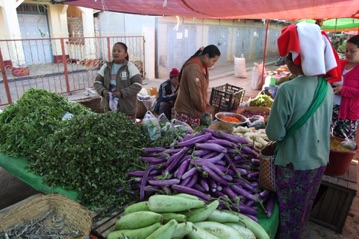News
21 May 2015

Reducing sugar consumption, overweight and related diseases
It is estimated that there are between 1.5 and 2.5 billion overweight people in the world, among whom more than 500 million who suffer from obesity. This overweight, which is due to a food consumption above what is required for an adequate nutrition, generates numerous non transmittable diseases such as cardiovascular diseases, a douzain of cancers and diabetes, and it causes a reduction of life expectancy. It is believed that this situation is the reason, every year, of more than two million deaths in the world.
In rich countries, such as Europe and North America, it is the poorest population groups who are the most hit. In France, for example, it is estimated that 7 million people are obese, more than twice as much as 15 years ago, and there are twice as many obese persons (in proportion) among workers than managerial staff. But overweight and obesity are also spreading in poor countries where it is often the emerging middle class that is most hit, imposing on those countries the double burden of hunger and overweight with their sanitary and social consequences.
The reasons for overweight - a disease which is often considered as a ‘civilisation disease’ are well known: consumption of food produced by the agro-industry that is rich in fats, sugar and salt, and lack of physical activity. There is increasing evidence that type 2 diabetes, which hits approximately 10% of the people in the world, is due to sugars being added to agroindustrial food and drinks (in particular fructose that can be found in corn syrup).

How can we change this situation?
A report that has just been published by the World Cancer Research Fund International, puts forward a number of ideas on the food policies that could promote a healthier diet and reduce obesity. These proposals aim specifically at reducing the consumption of sugar - which increased in the world from 130 to 178 million tonnes between 2000/2001 and 2013/2014 - to bring it below WHO (World Health Organization) recommendations fixed at 10% of total energetic value of food intake i.e. 50g/day (for example, 300ml of cola contains 35g of sugar). One of the reasons for the high consumption of sugar is that the world price of sugar is low and sometimes even below the cost of production. The sugar sector is dominated by a small number of multinationals who have largely benefited from subsidies paid by the European Union, as is the case for example of the French company Tereos. [read Why is agriculture protected in rich countries and penalised in poor countries? p.3]
The report reviews a series of policy measures decided by countries in order to draw lessons: school nutrition standards in Queensland, Australia; a vending machine ban in France; a front-of-package symbol that led to product reformulation in the Netherlands; soda taxes in France and Mexico; a programme targeting retail environments in New York City, USA; a programme promoting increased water consumption in schools in Hungary; school fruit and vegetable programmes in Netherlands and Norway; a healthy marketing campaign in Los Angeles County, USA and a comprehensive nutrition and health programme in France.
The conclusion it draws from this review is that what is required is implementing a comprehensive approach for the reduction of sugar consumption. The report proposes ten domains of action that have to do with the food environment, the food system and behaviour change communication, that will influence the availability of sugar, its price, our perception of sugar and of its substitutes, as well as our awareness of the presence of sugar in the food that we consume (see details in the diagramme below).

(download table in pdf format: Sugar table.pdf
The report provides examples of success of such policies some of which have already been mentioned recently on hunger explained.org [read]
It also suggests accompanying measures and support to agricultural producers and sugar industry workers during the transition phase out of sugar production.
One can only hope that the ideas and recommendations found in this report will influence policy makers in our countries and that the consumption of sugar will thus be reduced.
——————————
To know more:
- Sinclair, B. et al., Curbing global sugar consumption - Effective food policy actions to help promote healthy diets & tackle obesity, World Cancer Research Fund International, 2015
- Di Nicolantonio, J. et al., Added Fructose - A Principal Driver of Type 2 Diabetes Mellitus and Its Consequences, mayoclinicproceedings.org, 2015
- hungerexplained.org, Price policies can help promote healthier diets: the example of Europe, 2015
- hungerexplained.org, Food, environment and health, 2014
Last update: May 2015
For your comments and reactions: hungerexpl@gmail.com




